Clancy Tucker's Blog, page 244
October 10, 2015
11 October 2015 - WHAT ARE THE CRYSTAL SKULLS?
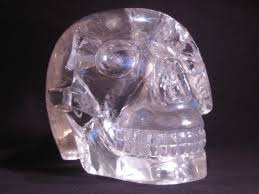
WHAT ARE THE CRYSTAL SKULLS?
G'day folks,
Here is something that might interest you.
Beginning in the late 19th century, around a dozen carved skulls made of clear or milky white quartz—also known as rock crystal—made their way into private and public collections around the globe. Since then, the origins of these “crystal skulls” have been the subject of ongoing mystery and controversy.
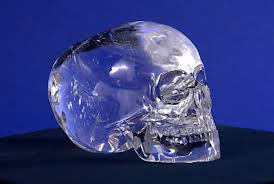
According to the people who claimed to have discovered the skulls, they date back thousands or even tens of thousands of years, to ancient Mesoamerican civilizations such as the Aztec, Toltec, Mixtec or Maya. Many of those who believe in the crystal skulls’ ancient provenance attribute supernatural powers to the objects, including healing properties and the power to expand a person’s psychic abilities in their presence. Some have linked the skulls to the lost city of Atlantis, or claimed them as proof that extraterrestrials visited pre-Columbian civilizations such as the Aztecs. The 2008 movie “Indiana Jones and the Kingdom of the Crystal Skull” capitalized on the ongoing mystery, as well as the passion the skulls’ believers bring to their side of the argument.
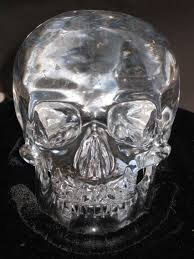
Scientists and archaeologists, on the other hand, are skeptical. For one thing, not one of the skulls was recovered on a documented excavation. And while skulls were a common motif in ancient Mesoamerica, and particularly Aztec, artwork (several Aztec gods are represented by skulls), the style and technique of the crystal skulls do not resemble genuine pre-Columbian representations of skulls. Recently, scientists from the British Museum in London and the Smithsonian Museum of Natural History in Washington, D.C. conducted analyses of crystal skulls using electron microscopes. After finding markings that could only have been made by modern-day carving implements—rather than the stone, bone and wooden tools that would have been used in pre-Colombian times—they concluded that the skulls were likely fakes. The scientists believe they were probably manufactured in the late 1800s, in response to a surge of interest in the ancient world and its artifacts.
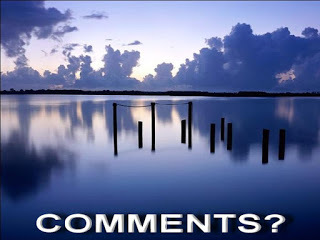
Clancy's comment: Mm ... Believe it or not.
I'm ...

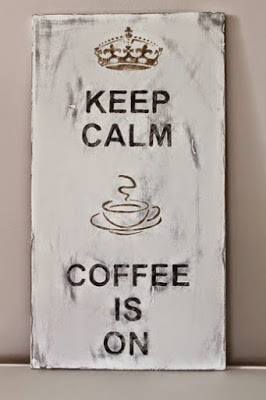
Published on October 10, 2015 02:25
October 9, 2015
10 October 2015 - KONRAD ADENAUER
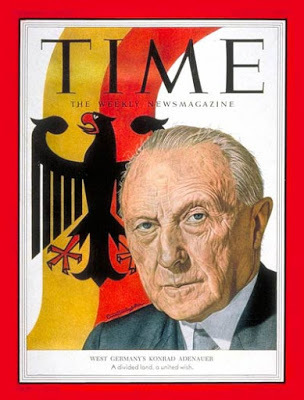
KONRAD ADENAUER
G'day folks,
Welcome to some background on an interesting German.
Konrad Adenauer was born in Cologne, Germany in 1876. After studying at the Universities of Freiburg, Munich and Bonn, he became a lawyer. In 1917, he was elected as a Mayor for Cologne, a position he held until 1933. He also became President of the Prussian state Council, making him one of the most powerful voices in Germany.
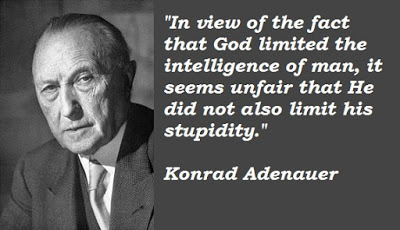
He was a staunch Catholic and his ideology put him at odds with the Nazi party. His opposition to Hitlerand the Nazi Party led to his removal from office in 1993, when they were elected. During the 1930s, and early 1940s, Konrad Adenauer kept a low profile trying to escape persecution from the Nazi’s. After the failed bomb plot of 1944, he was arrested and interned at a concentration camp near Bonn. He survived the war and in 1945 was temporarily placed as mayor of Cologne again.
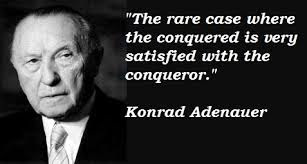
Shortly after, the British commander dismissed him for alleged incompetence. After this event he sought to establish a new political party – the Christian Democratic Union (CDU). This was a synthesis of his old Catholic party and other protestant parties. However, he fought against a synthesis of Socialist ideology which many others in the party would have liked.
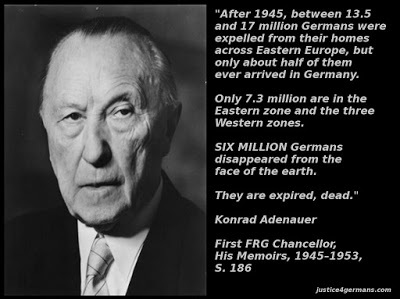
In 1949, at the age of 73, he was elected as the first Chancellor of the democratic Western Germany. Many felt, due to his age, this would be temporary, but he subsequently went on to serve until 1963, becoming the undisputed leader and powerful figurehead of Western Germany.
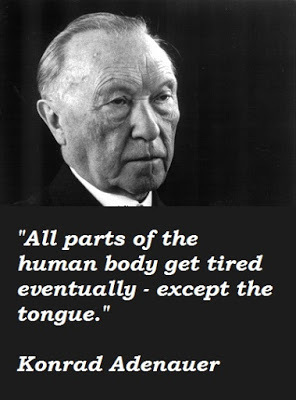
Under his leadership, the Federal German Republic made a rapid transformation into a modern Democratic state. He failed to prevent the split between East and West Germany, but he did achieve many notable success in domestic and foreign policy. He oversaw rapprochement and a new friendship with France, this enabled the development of European integration which was to become the European Union. He admitted German guilt in the holocaust and set up a series of reparations to Israel. He also criticised his own Catholic church for failing to do enough to condemn the Nazi policies. He also oversaw Germany’s re-entry into the international community as a peaceful, democratic society, such as joining Nato in 1955.
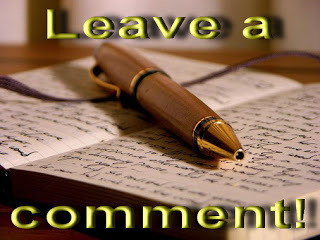
Clancy's comment: A powerful figurehead for Germany.
I'm ...
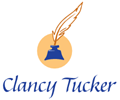

Published on October 09, 2015 03:44
October 8, 2015
9 October 2015 - ALEKSANDAR TOMOV - Guest Writer and Film Director
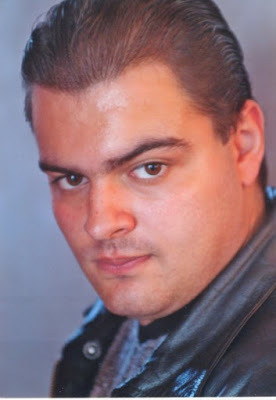
ALEKSANDAR TOMOV
- Guest Writer & Film Director -
G'day folks,
Welcome to an interview with my first guest from Bulgaria.
Welcome, Aleksandar ...
1. TELL US A LITTLE ABOUT YOURSELF AND YOUR WRITING JOURNEY.
My name is Alexandar Tomov - junior and I'm freelance writer and filmmaker, who is looking for realization, worldwide. I was born on June 3, 1982 in Sofia, the capital of Bulgaria. I studied a long time two disciplines – social anthropology and cinema. And I have very good literary education from child. My parents are writers too. As author I write very short stories in genres Absurd, dystopia, fantasy, fiction, post – apocalyptic, grotesque and drama. In my work there is strange viewpoint about human existence, imagination and mind. I try to describe absurdity of the world and life and also to find some deep, invisible connections in the flow of time, between many different states of human consciousness. As filmmaker I create short and existential movies in the same area and viewpoint. I have also a little book trailers creating business. With couple words, my dream as writer is to show to the Western world my strange visions from future, ideas, different and absurd realities, hypothesis and grotesque about societies, politic and human nature.
2. WHEN AND HOW DID YOU BECOME A WRITER?
I started writing poetry when I was 15 or 16. My first published book was a collection of poems. It would be fair to say that my parents pointed me in the direction of literature, as they are also writers. I wrote my first short story collection, Future Gone, when I was 21 or 22. It’s a strange book, in terms of its ideas and its point of view. After I wrote it, I decided to search for ways to take my writing abroad, outside of my home country. My dream and my ambition is to be able to present my philosophical insights globally and have them reach as many people as possible. I dare say that in some respects, I’ve developed a unique and one-of-a-kind perspective on the world, on existence, and on human consciousness as a whole.
3. WHAT TYPE OF PREPARATION DO YOU DO FOR A MANUSCRIPT? DO YOU PLAN EVERYTHING FIRST OR JUST SHOOT FROM THE HIP?
In regards to my writing process, it is based on intuition and it’s quite scattered in terms of time. It can’t really fit into any frames or be planned out. It's very different and strange. Sometimes I can’t write for a month and sometimes I write 3 – 4 stories for 1 – 2 days. I could say, that in some very special moments, my mind start working in some other frequency. This is my moment of inspiration. I can’t control this. There is deep connection with subconscious.
4. WHAT DO YOU ENJOY MOST ABOUT BEING A WRITER?
To express my mind. To make unthinkable connections. To think globally. To find some deep sense in different realities. To explore strange viewpoints. For me being a writer is a journey through everything. In this journey, there is no past, present and future. Only the flow of time.
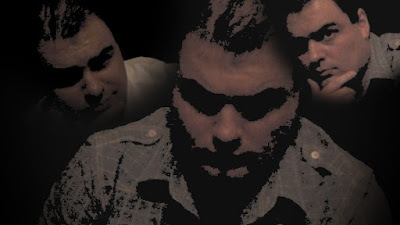
5. WHAT IS THE HARDEST THING ABOUT BEING A WRITER?
Personally for me and in my ambition In this aspect everything is big challenge and very difficult for me. I'm from small country, most - already self - published author, work alone via internet and my realization in English-speaking world, without recommendation is really, really hard. Often I feel alone against the world and huge and commercial systems in this my dream. But with years persistence and hard work, I already build some connections in internet and in the best site for literature - goodreads.com. I don’t give up and don’t stop trying to realise my dreams and to show the world my ideas. Many authors from Bulgaria have told me, that this is a lost cause and that the things don't happens so, but I can't escape from my dreams and this is my way.
6. WHAT WERE YOU IN A PAST LIFE, BEFORE YOU BECAME A WRITER?
I think maybe a scientist with poetic mind.
7. WHAT IS YOUR GREATEST WRITING ACHIEVEMENT?
I think will be my future book "Beyond the Absurd". The book is in english translation process. I could say, that this is the best from my work at this time. With "Beyond the Absurd" also I found the best genre in the literature, who become my second nature in writing - Absurd.
8. WHAT ARE YOU WORKING ON AT THE MOMENT?
As I already say, my last book is "Beyond the Absurd". But I always write very short stories.
9. WHAT INSPIRES YOU?
I would say that some modern and classic authors inspire my writing – writers like Franz Kafka, Fyodor Dostoyevsky, Stephen King also, Jorge Luis Borges, and Chekhov. However, someone who always amazes me is Antoine de Saint – Exupéry with “The Little Prince”. Simply written book in which is the whole world.
About personal inspiration process, It’s very difficult for me to answer it, but I’ll try to do it in the simplest possible way. My mind is filled with countless pieces of different realities, crazy ideas, absurd points of view, visions from the future, impulses, and perceptions . . . My main goal is to somehow connect them in a short story; to find the impossible link between them, where at first glance no such link exists. This is at the heart of my creative process—finding the invisible thread and then coming up with a way to show all that to the reader. Regarding my inspiration, what I could say is that there are certain, very special moments, when my consciousness starts to function at very strange frequencies. The state itself is incomprehensible. My creative process is based on intuition.
10. WHAT GENRE DO YOU WRITE?
At this time, I write very short stories in genres Absurd, dystopia, fantasy, fiction, post – apocalyptic, grotesque and drama.
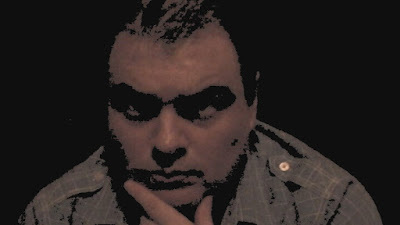
11. DO YOU HAVE ANY TIPS FOR NEW WRITERS?
My most important piece of advice to new writers is to always believe in their work, and in literature as a whole. For a freelance writer, a writer like me, being successful in today’s commercial world can sometimes prove to be extremely difficult. Generally speaking, the system as a whole brings you down, oppresses you, and gives you no chances when you are on your own. This is simply how the world works. This is a given. But if you persevere and never stop believing in your dream, you’ll always find a way. In that respect, a young writer has to keep fighting and trying to develop an inventive mind. There’s one other thing I’d like to say to young authors. Each and every person in the world is unique. Each person’s character, their imagination, and their past are one-of-a-kind. In that respect, I believe that each and every person is capable of creating literature, as long as he/she is able to make the right connections and to represent even his/her whole life and imagination in a way that is original, interesting, and accessible to others. And something very important for new writers - To stand against their fears and try to transform everything in their minds into literature.
12. DO YOU SUFFER FROM WRITER’S BLOCK?
Yes sometimes. But this is the risk to be a writer. Every writer must take this risk. There is no other way.
13. DO YOU HAVE A PREFERRED WRITING SCHEDULE?
No. I write always, when I have ideas and inspiration.
14. DO YOU HAVE A FAVOURITE WRITING PLACE?
Yes. At home, front of my computer. But my absurd ideas come everywhere
15. WHAT IS YOUR GREATEST JOY IN WRITING?
The best part is when I manage to finish some short story. And when I feel intuitively that the whole story and the end of it are ready. In this way all visions, chaotic thoughts, madness and strange viewpoints are connected in some Absurd. And I feel this.
16. WHO IS YOUR FAVOURITE AUTHOR AND WHY?
I already mentioned for some modern and classic authors, which are influenced to me as writer. Also there are too many short pieces from books, stories, and movies in my mind, which I use for some of my stories. I would add that the writers, which are closer to my writing models are Franz Kafka, Jorge Luis Borges and Stephen King in some area, maybe on unconscious level.
17. WHAT’S THE GREATEST COMPLIMENT YOU EVER RECEIVED FROM A READER?
A couple readers are comparing my stories with the stories of Franz Kafka. This is big compliment for me.
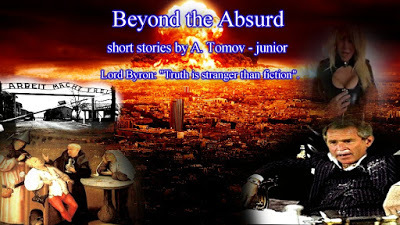
18. WHAT WAS THE WORST COMMENT FROM A READER?
I have receive some bad and offensive comments and reviews for some of my books. The writer must accept any kind of opinions. Of course, when we talk about literary reviews and dialogue, must have some intellectual and spiritual level. I received some very rude and vulgar words, about one of my books, but I accept all this.
19. WRITERS ARE SOMETIMES INFLUENCED BY THINGS THAT HAPPEN IN THEIR OWN LIVES. ARE YOU?
Basically I write fiction and fantasy and almost everything is imagination, but in some parts of my short stories there are described real moments, memories and even dialogue from my life and past. Also in other aspect, my stories are connected in strange way with everyday reality. Some of they are picture of my escape from boring life and everything. One very strange character in many of my stories is the child. I could say this character is symbolical in my creativity. Connection between human side and dark mind and visions. Wandering between the bright and dark side. Often asking simple, but truth questions, and reminiscent of other my characters, for their lost souls. Maybe unconscious reflection of me.
20. OTHER THAN WRITING, WHAT ELSE DO YOU LOVE?
Other than writing and cinema in my personal life, I like a couple things. I like to going outside with friends sometimes. I like sports - Bodybuilding and jogging. I’m sport nature. I like science as hobby. I'm very curious in some science areas. I like also tourism in bulgarian mountain and Black sea.
21. DID YOU HAVE YOUR BOOK / BOOKS PROFESSIONALLY EDITED BEFORE PUBLICATION?
No. I'm self - published author and at this time I don't have editor.
22. DESCRIBE YOUR PERFECT DAY.
There is no perfect day in life. Every person must accept the everyday challenges and difficulties. But I could say, that the perfect day is the one, which I made perfect. Also every day with faith, can be perfect.
23. IF YOU WERE STUCK ON A DESERT ISLAND WITH ONE PERSON, WHO WOULD IT BE? WHY?
Maybe one of my favorite poetess - Emily Dickinson. Man cannot be lonely, even in desert island with person and poetry, like this.
24. WHAT WOULD YOU SAY IF YOU HAD THE CHANCE TO SPEAK TO WORLD LEADERS?
Every person is mortal. The life of every human is unique. Everyone has fears. The political power not defeated fear of death. This is illusion of the present moment. Live beautifully.
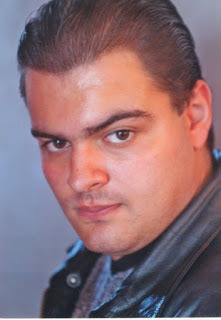
25. WHAT ARE YOUR PLANS FOR THE FUTURE?
My future is literature. I don't have strict plans after my book "Beyond the Absurd". This is the important to me now. But I always write short stories. I need only to not lose my sense and intuition for writing.
26. WHAT FIVE BOOKS WOULD YOU TAKE TO HEAVEN?
"Hamlet" by William Shakespeare, "The Metamorphosis" by Franz Kafka, of course “The Little Prince” by Antoine de Saint – Exupéry, "1984" by George Orwell and "Treasure Island" by Robert Louis Stevenson.
27. DOES THE PUBLISHING INDUSTRY FRUSTRATE YOU?
Sometimes it's really hard and injustice. But always have chance. The writer must adapting to the system and to find way.
28. DID YOU EVER THINK OF QUITTING?
No, because I don't smoke.
29. WHAT WAS YOUR FAVOURITE MANUSCRIPT TO WRITE? WHY?
Again, my last book "Beyond the Absurd". I think that this is the essence of me at this time. It was precisely my journey as a writer through the world of literature that brought me to what I think is the most perfect genre—that of the absurd. After I started thinking in this way, I wrote my book Beyond the Absurd.
The absurd is a literary genre I discovered relatively late, but it has already become a kind of second nature. The absurd is closest to my way of thinking. What is actually the absurd? It is the unthinkable, which could nevertheless happen at any moment. Generally speaking, almost everything—when it comes to people and the universe—could be labeled as absurd, from the point of view of human consciousness. People try to subject the world and their lives to some logic, but no matter how close they get to accomplishing this, it could all fall apart and become absurd at any moment. I’m sure that all of us experience at least a few absurd instances in our own lives. This has been proven by human history as well. Great scientists, such as Einstein and come contemporary physicists, have proven that even mathematics itself is absurd and that numbers and strict logic are sometimes contradictory. The absurd, I believe, can unite all the other genres within itself. It is precisely the absurd that allows for otherwise impossible connections between everything to be made, by letting you completely open your consciousness to the existential. Also the absurd is the embodiment of chaos and a counterpoint to the human desire to control everything.

30. HOW WOULD YOU DEFINE ‘SUCCESS’ AS A WRITER.
Author who can express original ideas in a very accessible way for the reader. And personally for me - World famous writer.
31. WHAT SHOULD READERS WALK AWAY FROM YOUR BOOKS KNOWING? HOW SHOULD THEY FEEL?
The reader can see in my work many different realities and strange and absurd viewpoints about human nature, mind and imagination, strange visions from future and deep journey into the subconscious. Also in some of my stories, there are grotesque themes about society and politic. So in my work there is no strict logic. I believe, that I presented my philosophical insights in accessible way for the reader.
32. HOW MUCH THOUGHT GOES INTO DESIGNING A BOOK COVER?
Depends. The cover is very important sometimes. It is like symbol or can be very short book synopsis in images. I have made at self, almost all my book covers. And also my last cover of "Beyond the Absurd". There is some landmark moments from the history and art, connected in Absurd way, as the book spirit.
33. WHAT’S YOUR ULTIMATE DREAM?
I'm always alone against the world and It's really hard, but someday I will be world famous writer.
34. WRITING IS ONE THING. WHAT ABOUT MARKETING YOU, YOUR BOOKS AND YOUR BRAND? ANY THOUGHTS?
There is no formula about this. Every way is different. I search my own from long time. The truth is that I am constantly in search of ways to promote my work myself, and I am still and always in the process of learning. To young authors who are just starting out, I’d recommend the use of the main social networks, such as Twitter, Facebook, and Google+. It’s very important to have all of their profiles linked to one another and there’s an option to do that, as well as to use all the instruments for sharing, as well as hashtags. Most of all, I would like to recommend goodreads.com, which is my favorite site. I think this is the best literary site on the Internet, and it gives countless options and enormous opportunities to freelance writers.
35. ARE YOUR BOOKS SELF-PUBLISHED?
I'm most - already self - published author in Amazon. But I'm also included in one anthology with short stories, published by www.mardibooks.com, with title "Unexpected Tales from the Ends of the Earth". We are 5 authors there and I participate with some Absurd, post - apocalyptic and dystopia stories.

36. DESCRIBE YOURSELF IN FIVE WORDS.
Strange, lonely, deep, strong, different.
37. WHAT PISSES YOU OFF MOST?
The human greed and materialism sometimes angers and despairs me.
38. WHAT IS THE TITLE OF THE LAST BOOK YOU READ? GOOD ONE?
Outside literature. I love science and most astrophysics, cosmology and modern and strange hypotheses, about human brain and our reality. There is no one title, but in last time I read more about The Holographic Universe. I'm a little obsessed from this theory. Even I think that in some of my absurd short stories, there is some insights, about Holographic Universe.
39. WHAT WOULD BE THE VERY LAST SENTENCE YOU’D WRITE?
“THERE IS SOMETHING INHERENTLY DECEPTIVE ABOUT REALITY".”
40. WHAT WOULD MAKE YOU HAPPIER THAN YOU ARE NOW? CARE TO SHARE?
Only one thing. To become World famous writer.
41. ANYTHING YOU’D LIKE TO ADD?
I would like to share to all writers, readers and everyone, who is interested in 2 things. The first are my book trailers creating services. You can see all you need in links below:
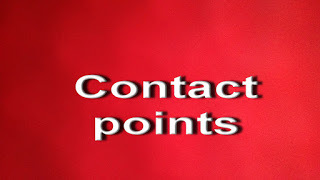
All my book trailers online in youtube.com:
https://www.youtube.com/playlist?list=PLmigg2-dI2F2BNwKsM2oGP6rU7xeulCTy
My offer:
https://plus.google.com/105779808610351075620/posts/4fnngL6vESR
The second is my suggestion for read and review. At this time I give for free unlimited numbers of e-book copies of 12 translated short stories from my future book "Beyond the Absurd" for read and reviews. I need opinions and I'll be appreciated to everyone, who leave some comment in www.goodreads.com. You can see more details in links below:
12 short stories from "Beyond the Absurd" - free e-book link for read and reviews:
https://www.goodreads.com/reader/66332-beyond-the-absurd?return_to=%2Febooks%2Fedit%2F66332-beyond-the-absurd
Beyond the Absurd - link for reviews:
https://www.goodreads.com/book/show/18690888-beyond-the-absurd
Front cover:
https://www.goodreads.com/photo/group/139949-ask-the-author?photo=1038003-beyond-the-absurd-front-cover
MARDIBOOKS.COM - profile page (some more information about me and quotes from my books):
http://www.mardibooks.com/alexandur-tomov/
Best regards: A. Tomov - junior
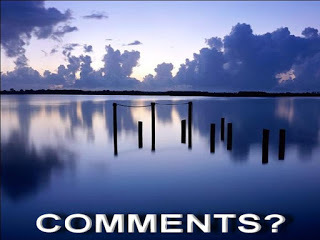
Clancy's comment: Thank you, Aleksandar. I liked your answer to number 28. Very sharp. Good luck. Keep writing.
I'm ...
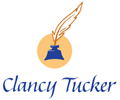
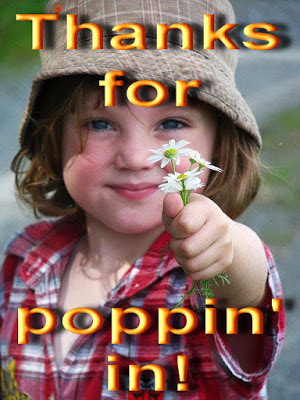
Published on October 08, 2015 04:49
October 7, 2015
8 October 2015 - DI BATES - AWESOME ANIMALS BLOG TOUR
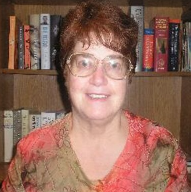 DI BATES- AWESOME ANIMALS BLOG TOUR -
DI BATES- AWESOME ANIMALS BLOG TOUR -G'day folks,
Today, I welcome one of Australia's most renowned authors as part of a blog tour - Di Bates. Di has written well over 120 titles so you will find this article very interesting.
Welcome, Di ...
Working With a Great Publisher For about 35 years I’ve been writing books for children and have now published well over 120 titles with a range of big publishers like Penguin Books and HarperCollins to small publishers such as Morris Publishing Australia and Dragon Tales Publishing. Although the bigger companies have more clout nationally and internationally and the royalties from them are generally more than that received from small, I have a preference for publishing with smaller companies. Personal attention, better lines of communication and pro-activity are hallmarks of the staff working on small imprints. This is the story of the latest smallish publisher I worked with which has been one of the best I’ve ever published with.
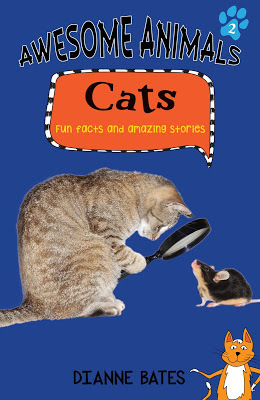
Some years ago I wrote three children’s non-fiction books about cats, dogs and horses which, being all alike in presentation, I saw as a book series. Each book contained fun facts and amazing stories about animals - a Guinness Book of Records meets Ripley’s Believe It or Not! Each book, for example cats, had the same format as the other two. Awesome Catslooked at the cats in history, cat adventures, famous cats and famous people’s cats, TV, stage and movie cats, and working, luck, spoilt and clever cats. There were many jaw-dropping facts about cats, stories that were amazing but true, jokes and verse featuring cats, and for the true catophiles, there was a list of children’s books about cats.
As well as completing every book, I also created a marketing proposal to help any publisher make a decision to publish. The proposal included the demographics of the intended audience (children aged 8 to 12 years with a reading age of nine), a description of the series’ contents and approach, the main strengths of the series, any major competition (I couldn’t find any), markets to which the series would appeal and an author bio. I then found as many possible publishers for the series and began my submissions.
Looking at statistics in my despatches’ file over a few twelve month periods, I have found that on average one third of publishers to whom I submit manuscripts never respond. Of those that do, most of them take from three to nine months to reply. None ever give reasons for rejecting manuscripts (which is fair enough as they are not assessors, just industry people accepting or rejecting a product).
Eventually I had submitted to 30 publishers in Australia and overseas without any luck. Then a small Australian publisher based in Sydney expressed interest. I was invited to the publisher’s office where she showed me books she had published. They looked exactly what I had envisaged for my books – attractively designed with photographic content. All of the books she had published were about animals. That day the publisher said she would send me a contract.
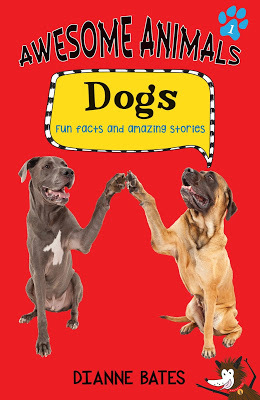
I waited. For months. When I wrote asking when I might expect the contract, the publisher replied (after some weeks) apologising that she was now unable to publish my books; that she had closed her doors.
I then submitted to all other publishers I thought might be interested and when I had exhausted all possibilities, I put my manuscripts in the proverbial ‘bottom drawer’. Years followed and I had more or less forgotten about my animal series. Then one day I was reviewing a beautifully designed, attractive and well-written non-fiction book by an Australian publisher I’d not heard of before – Big Sky Publishing, based in Sydney. When I saw on their website that Big Sky specialised in non-fiction books, I remembered my manuscripts and made a submission.
I sent my manuscript by Word document attachment by email on 13 January, 2015; receipt was acknowledged the next day, and them on 12 February I received an email from the publisher Diane Evans saying the company was interested. Diane phoned me three days later and all three books were contracted the following month. Submitting a manuscript and having it contracted in less than two months is something I hadn’t experienced in many years. This was the beginning of what has turned out to be a very happy journey for me. The publisher was a total delight to work with, and when I was sent samples of the artwork to approve, I was even happier. Diane’s sister Sharon who is responsible for book promotion has also been a blessing in the publishing process.
I’ve learnt that Big Sky Publishing has its own book club (Red Gum) so my book will reach so many more children than would be possible with most other publishers. On top of that, Jodie Bennett who also works with the Evans’ sisters has been responsible for the production and delivery of bookmarks and posters – all in full, bright colour, and like the illustrations in each of the books, beautifully designed and presented. Each of the books feature lots of gorgeous illustrations combined with coloured photographic images of adorable dogs and cats from Best Friends Rescue and Little Legs Cat Rescue. The inclusion of real-life images and stories of the charismatic animals from these pet rescue organisations adds another level of education and inspiration.
I could not really have imagined that that the Awesome Cats, Dogs and Horses’ books would turn out as brilliantly as they have. My whole experience with Big Sky Publishing from start to finish has been an author’s dream... in fact I really couldn’t have dreamed it, only hoped for it.
So here’s an enormous thank you for all of those at Big Sky Publishing for their vision, their courtesy and great communication, and for their hard work turning once rejected manuscripts into books that I feel immensely proud of.
Where can people buy Awesome Cats and Awesome Dog?
The books retail for $14.99 each. Here’s where you can get Awesome Cats:
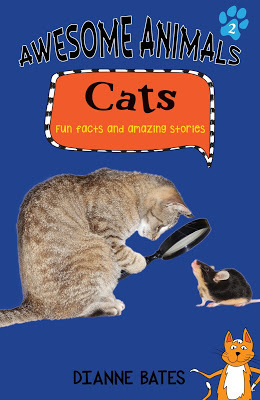
http://www.bigskypublishing.com.au/Books/Children/Awesome-Animals-Cats/1123/productview.aspx
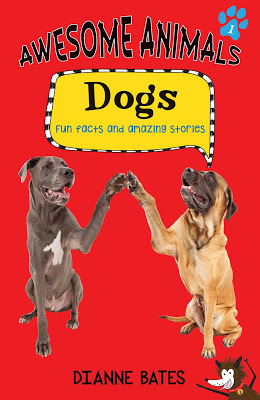
... and Awesome Dogs:
http://www.bigskypublishing.com.au/Books/Children/Awesome-Animals-Dogs/1124/productview.aspx
More about the books
Author: Dianne Bates
Publisher: Big Sky Publishing
ISBN: 978-1-925275-38-4 Dogs
ISBN: 978-1-925275-40-7 Cats
Publisher: Big Sky Publishing
Pages: 150
Format: Paperback
Size: 234 x 152mm
RRP: $14.99 (Paperback)
RRP: $6.99 (eBook)
Publisher - Big Sky Publishing T: 1300 364 611 F: (02)99182396 Distributor – Woodslane, phone: (02) 8445 2300 F: (02) 9970 5002 info@woodslane.com.au www.woodslane.com.au
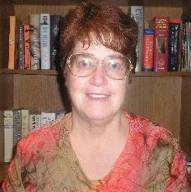
Awesome Animals is an entertaining new non-fiction animal series for kids - a Guinness Book of Records meets Ripley’s Believe It or Not!
Awesome Cats and Awesome Dogs are the first two books in the series published in October 2015 by Australian company, Big Sky Publishing.
Each beautifully styled book in the series features fascinating stories about animals from all over the world. In them, you will discover true stories and amazing facts about our best-loved pets cats and dogs.
AWESOME ANIMALS BLOG TOUR:
1. 5 October Di Bates http://diannedibates.blogspot.com.au/ Article: Working with Big Sky Publishing
2. 6 October Karen Tyrrell http://www.karentyrrell.com
3. 7 October Dee White deescribewriting.wordpress.com
4. 8 October Clancy Tucker clancytucker.blogspot.com.au
5. 9 October Susan Whelan http:// www.kids-bookreview.com
6. 10 October Elaine Ouston www.elaineoustonauthor.com
7. 11 October Sandy Fussell www.sandyfussell.com/blog
8. 12 October Alison Reynolds www.alisonreynolds.com.au
9. 13 October Kate Foster http://www.katejfoster.com/blog
10. 14 October Robyn Osborne http://robynosborne.com/blog-2
11. 15 October Sally Murphy http://aussiereviews.com
12. 16 October Georgie Donaghey www.creativekidstales.com.au
13. 17 October Melissa Wray http://melissawray.blogspot.com.au
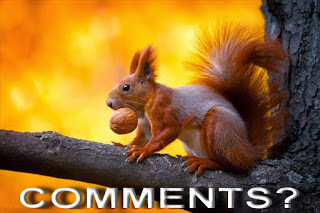
Clancy's comment: Well done, Di. Great concept, great author, great books.
I'm ...
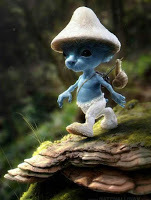

Published on October 07, 2015 03:29
October 6, 2015
7 October 2015 - WISE, WISER & WISEST
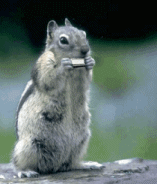
WISE, WISER & WISEST
G'day folks,
Here are some more wise comments to pontificate upon in your spare time.
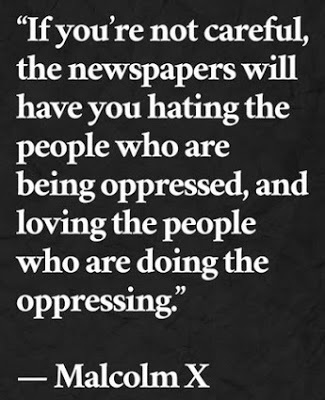
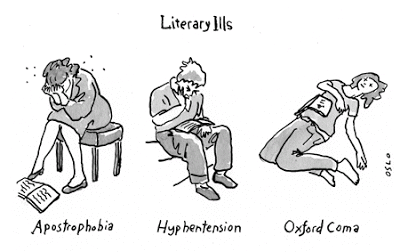
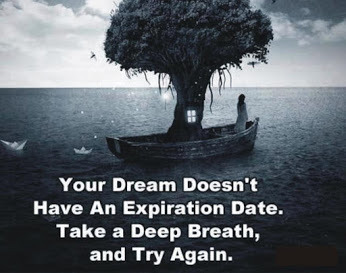
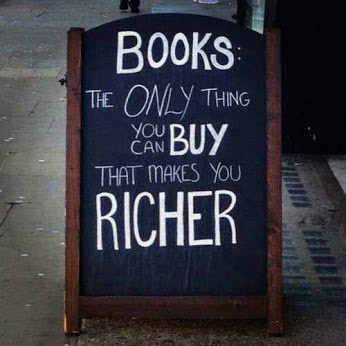
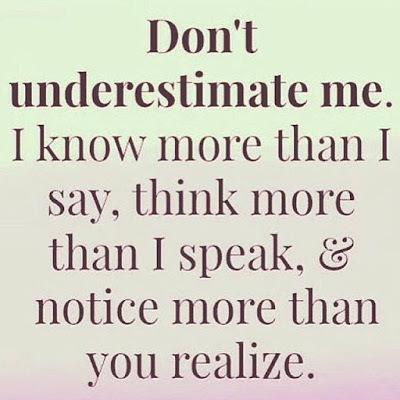
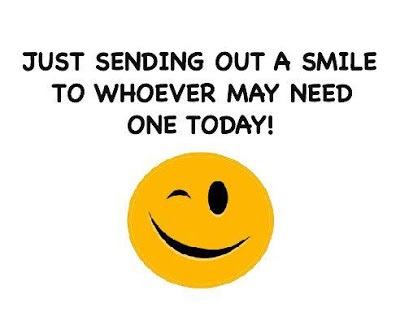
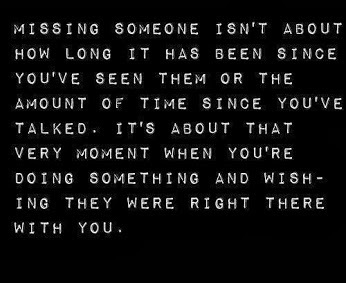
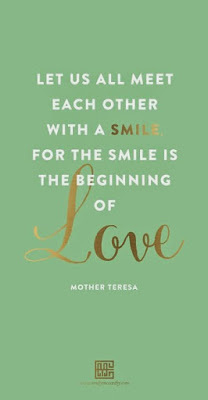
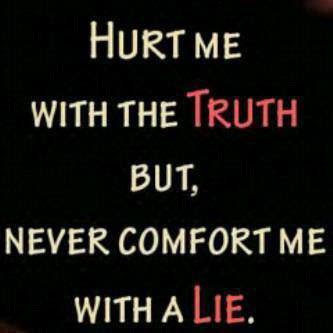

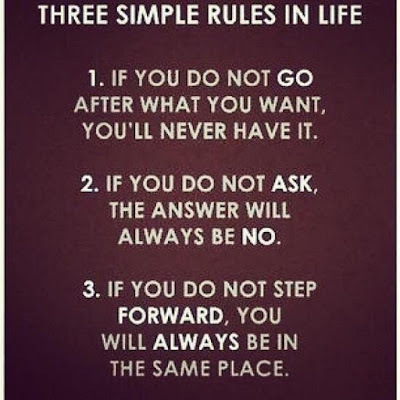
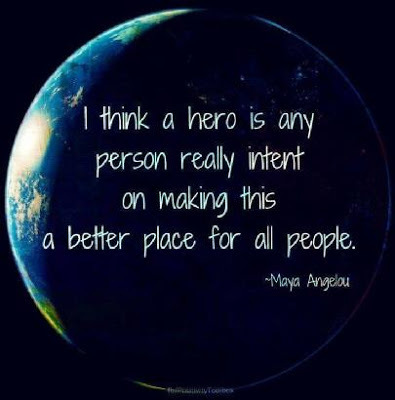
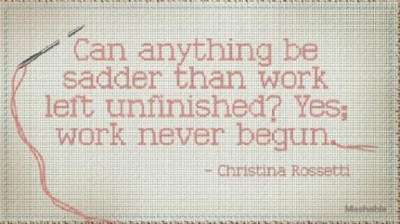
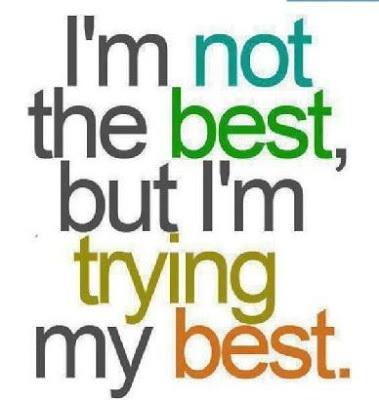
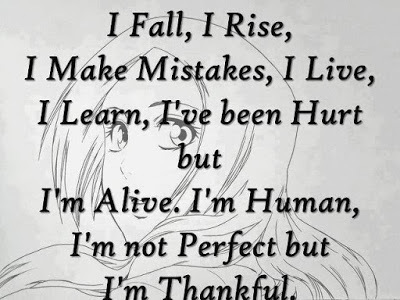
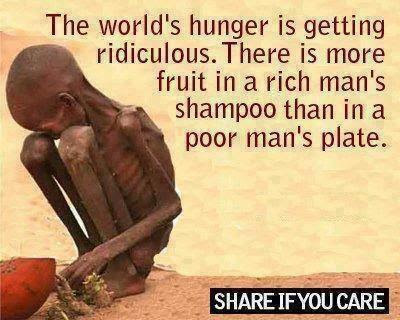

Clancy's comment: There ya go, folks. You might want to share some of these.
I'm ...
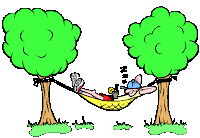

Published on October 06, 2015 02:14
October 5, 2015
6 October 2015 - MOHANA RAJAKUMAR - Guest Author

MOHANA RAJAKUMAR
- Guest Author -
G'day folks,
Welcome to an interview with a very talented author from Qatar.
Mohanalakshmi Rajakumar’s award winning books have focused on various aspects of life in the Arabian Gulf nation of Qatar. From Dunes to Dior is a collection of essays related to her experiences as a female South Asian American living in the Arabian Gulf and named as Indie Book of the Day in 2013.
Love Comes Later is a literary romance set in Qatar and London and was the winner of the Best Indie Book Award for Romance in 2013, short listed for the New Talent award by the Festival of Romance, and Best Novel Finalist in eFestival of Words, 2013. She currently lives with her family in Qatar, where she teaches writing and literature courses at American universities.
Welcome, Mohana ...
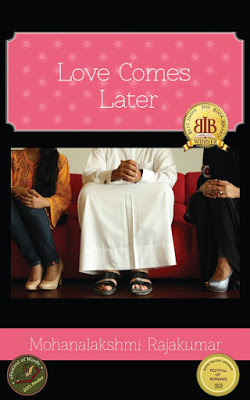
1. TELL US A LITTLE ABOUT YOURSELF AND YOUR WRITING JOURNEY.
I started writing in graduate school as an elective – mostly short stories. My professor was encouraging, so I kept going. I tried for 10 years to get an agent before striking out on my own.
2. WHEN AND HOW DID YOU BECOME A WRITER?
I became comfortable with using the word “writer” with a big W when I released my first eBook, back in 2012. Before then, I thought of it as a hobby.
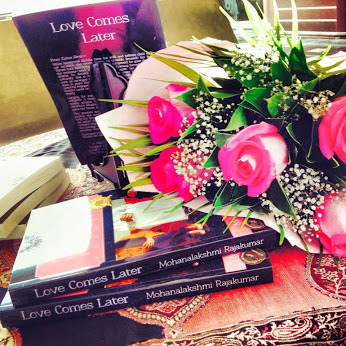
3. WHAT TYPE OF PREPARATION DO YOU DO FOR A MANUSCRIPT? DO YOU PLAN EVERYTHING FIRST OR JUST SHOOT FROM THE HIP?
I’ve learned the hard way that a good outline can save you tons of time and effort in the revising and editing. A chapter by chapter outline of what the scenes are can get to a solid first draft. Many of my books had soap opera like jumps in time. I also read everything I can about the topic I’m writing about.
4. WHAT DO YOU ENJOY MOST ABOUT BEING A WRITER?
I love telling stories about parts of the world no one else is thinking about, like Qatar or Laos, where two of my books are set.
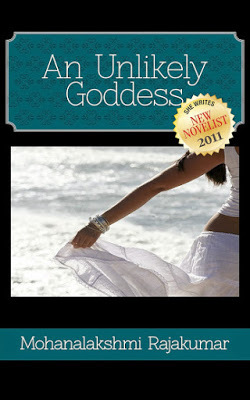
5. WHAT IS THE HARDEST THING ABOUT BEING A WRITER?
Waiting for someone to review your book! Or reading negative comments about your story/idea/characters.
6. WHAT WERE YOU IN A PAST LIFE, BEFORE YOU BECAME A WRITER?
I hope I was a glamorous silent film star J.
7. WHAT IS YOUR GREATEST WRITING ACHIEVEMENT?
Any time a reader says, “I couldn’t put this down.”
8. WHAT ARE YOU WORKING ON AT THE MOMENT?
Two sequels are in the works: one for a romance series and other in crime.
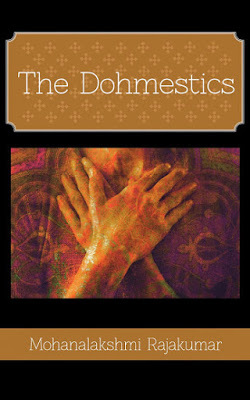
9. WHAT INSPIRES YOU?
I love interesting, funny, unique stories, experiences, people.
10. WHAT GENRE DO YOU WRITE?
I write in whatever genre I find interesting. Memoir, fiction, academic: I’ve done it all.
11. DO YOU HAVE ANY TIPS FOR NEW WRITERS?
Write. Honestly, there is no getting around getting your words on the page whenever you can, however much you can.
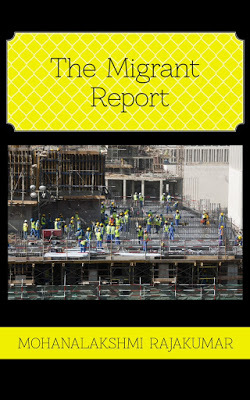
12. DO YOU SUFFER FROM WRITER’S BLOCK?
I don’t have the luxury of writer’s block: I have two children under the age of 6 and a full time job teaching university.
13. DO YOU HAVE A PREFERRED WRITING SCHEDULE?
I participate in National Novel Writing Month every November (it’s free for anyone to join) and so the months of November-March are very busy with writing, editing and revising. The other months I’m tinkering and marketing.
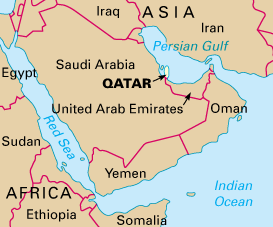
14. DO YOU HAVE A FAVOURITE WRITING PLACE?
Libraries or my office on Saturday afternoons.
15. WHAT IS YOUR GREATEST JOY IN WRITING?
Having the reader say, “I’ve felt like that before but I’m not a South Asian/woman/refugee/etc.
16. WHO IS YOUR FAVOURITE AUTHOR AND WHY?
So many to name but I always come back to Alice Munroe. Her writing is beautiful yet accessible and she also isn’t afraid to take her characters into the sadder moments of their lives.
17. WHAT’S THE GREATEST COMPLIMENT YOU EVER RECEIVED FROM A READER?
“I highly recommend this book.”
18. WHAT WAS THE WORST COMMENT FROM A READER?
“Boring”

19. WRITERS ARE SOMETIMES INFLUENCED BY THINGS THAT HAPPEN IN THEIR OWN LIVES. ARE YOU?
Many of my stories are influenced by lingering questions inspired from my own life or stories other people tell me. In The Dohmestics, for example, there are several maid characters and several employers; the problems between the maids and mistresses have to do with urban legends and other pieces I’ve heard over the years.
20. OTHER THAN WRITING, WHAT ELSE DO YOU LOVE?
READING!!
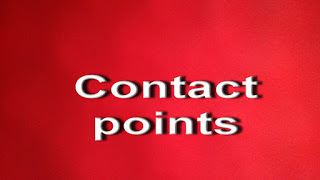
Learn more about her work on her website:
MOHADOHA.COM
Twitter: @moha_doha.
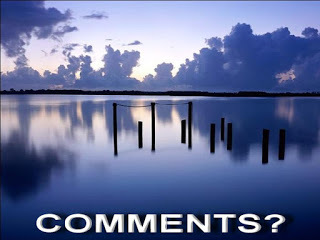
Clancy's comment: Thank you, Mohana. You certainly live in a very interesting part of the world. Keep going, and best wishes.
I'm ...
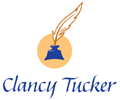

Published on October 05, 2015 02:46
October 4, 2015
5 October 2015 - WHO WAS D. B. COOPER?
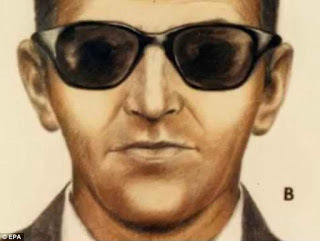
WHO WAS D.B. COOPER?
G'day folks,
Ever heard of this man? Read on. Oh, not only but also, at the bottom of this post I've included another great review by one of Australia's best book reviewers for my latest novella - Sheeza!
The man who approached the Northwest Orient Airlines counter on the afternoon of November 24, 1971, said his name was Dan Cooper (“D.B.” was a distortion that later appeared in the press). He asked for a one-way ticket from Portland, Oregon to Seattle, Washington—and used cash to pay for it. Wearing a dark suit, he sat in the rear of the plane, lit a cigarette and ordered a bourbon and soda. Shortly after Flight 305 took off, Cooper gave a flight attendant a note saying he had a bomb, then showed her something inside a cheap attaché case that did, indeed, resemble a bomb.

Cooper’s demands were simple: $200,000 and four parachutes. When the flight landed in Seattle, Cooper allowed the authorities to evacuate the other 36 passengers and some of the crew in exchange for the money and parachutes. According to Cooper’s instructions, the plane then took off again, heading toward Mexico City at a low altitude. Somewhere between Seattle and Reno, Nevada, Cooper jumped out of the plane into a driving thunderstorm and sub-zero air temperatures, wearing only a thin suit, a raincoat and wraparound sunglasses.The pilots landed the plane safely, but Cooper was never seen again.
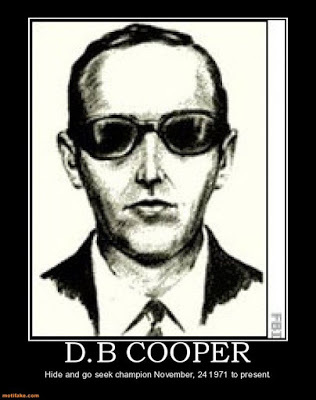
According to eyewitness accounts, Cooper was a white man in his forties, between 5 feet, 10 inches and 6 feet tall and weighing 170 to 180 pounds, with brown eyes. The FBI followed thousands of leads to find Cooper, considering more than 800 suspects in the five years following the incident. Over the years, several suspects have been seriously considered—including Kenneth Christiansen, who worked for the airline and was an experienced paratrooper—and eliminated for various reasons. To this day, it is the only unsolved skyjacking case in American aviation history.
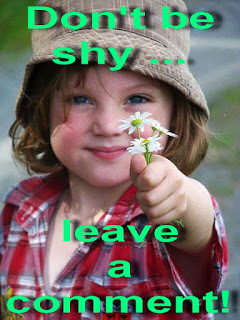
Clancy's comment: I wonder if Mr. Cooper is reading this post today?
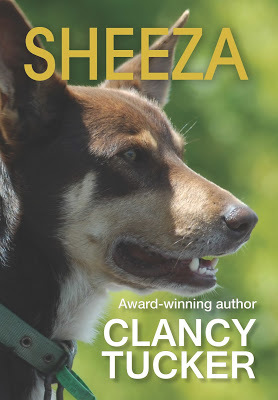
REVIEW FOR SHEEZA!byAnastasia Gonisat Buzzwords Books
Sheeza by Clancy Tucker (Morris Publishing Australia) PB RRP $18.00 including postage E-book$3.00(Overseas $21.00 including postage)ISBN 9780646935843 Danny has an artificial limb and wears glasses. He’s the perfect target for bullies and ‘Mad Dog’ Fletcher is out to get him. Danny can’t play sport so longs to have a dog. Towards this end, he has been doing odd jobs for the lovely oldies in his area, and saving every penny.
He doesn’t want any dog, he wants a Kelpie, to train and enter into the sheep dog trials at the Agricultural Show. He has read every book he could find, and watched every video available in preparation for the moment he gets the go-ahead from his parents.
Joey is Danny’s best friend, confidante, and protector when things get rough. Joey is optimistic, lovable and daring. He balances Danny’s smart and responsible side well which makes for a perfect friendship.
When Danny sees the physically-challenged pup in the pet shop, he knows it’s the one. They bond immediately and training the pup, which he names Sheeza, is a breeze. They end up winning the sheep dog trials at Wanganui.
It’s when Sheeza is stolen that everyone joins the hunt to find her. Who could have taken her? Where can she be and will she ever be found? Posters, Current Affair programs, truckies with two-way radios across Australia and an informed public, set out to find and reunite the dog with the boy.
This is Clancy Tucker’s second novella. He’s a writer who loves to get his teeth into difficult themes and always manages to weave several issues into one story.
A well-researched book, Sheezaincorporates detailed information about working dogs, their training and habits. I loved this story. It kept me reading without stopping until the end. As usual, there are fantastic characters - humans and animals, bad versus good in people, and problems that are overcome due to a tight community and strong friendships. To never give up is a powerful message that flows through all the issues addressed.

BUZZWORDS BOOKS
Thank you Anastasia and Buzzwords Books. Love ya work!
PS: If you are wondering how Sheeza got her name, you will have to read the book. The answer is in the last few sentences of the book.
I'm ...
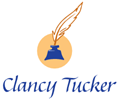
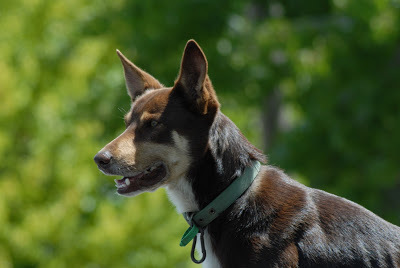
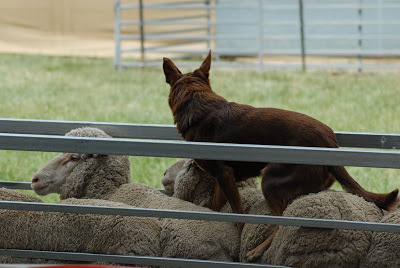
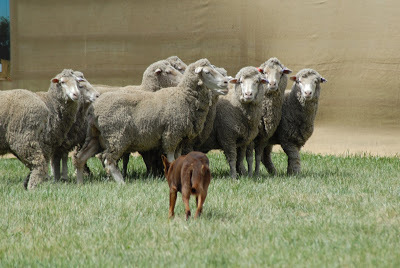
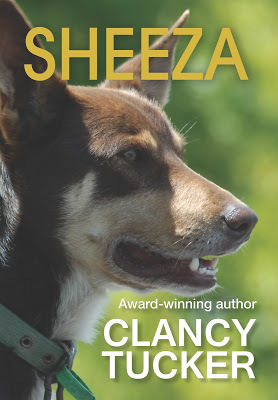
Published on October 04, 2015 02:45
October 3, 2015
4 October 2015 - TIPS FOR FICTION WRITERS
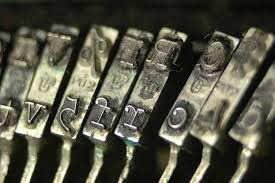
TIPS FOR FICTION WRITERS
G'day folks,
Here are some tips from Elmore Leonard for those of you who write fiction.
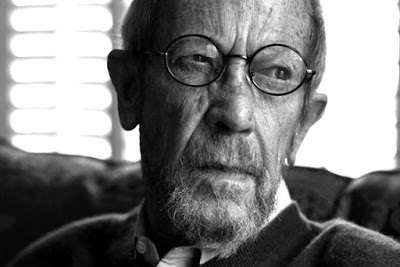
Elmore Leonard: Using adverbs is a mortal sin
1 Never open a book with weather. If it's only to create atmosphere, and not a character's reaction to the weather, you don't want to go on too long. The reader is apt to leaf ahead looking for people. There are exceptions. If you happen to be Barry Lopez, who has more ways than an Eskimo to describe ice and snow in his book Arctic Dreams, you can do all the weather reporting you want.
2 Avoid prologues: they can be annoying, especially a prologue following an introduction that comes after a foreword. But these are ordinarily found in non-fiction. A prologue in a novel is backstory, and you can drop it in anywhere you want. There is a prologue in John Steinbeck's Sweet Thursday, but it's OK because a character in the book makes the point of what my rules are all about. He says: "I like a lot of talk in a book and I don't like to have nobody tell me what the guy that's talking looks like. I want to figure out what he looks like from the way he talks."
3 Never use a verb other than "said" to carry dialogue. The line of dialogue belongs to the character; the verb is the writer sticking his nose in. But "said" is far less intrusive than "grumbled", "gasped", "cautioned", "lied". I once noticed Mary McCarthy ending a line of dialogue with "she asseverated" and had to stop reading and go to the dictionary.
4 Never use an adverb to modify the verb "said" ... he admonished gravely. To use an adverb this way (or almost any way) is a mortal sin. The writer is now exposing himself in earnest, using a word that distracts and can interrupt the rhythm of the exchange. I have a character in one of my books tell how she used to write historical romances "full of rape and adverbs".
5 Keep your exclamation points under control. You are allowed no more than two or three per 100,000 words of prose. If you have the knack of playing with exclaimers the way Tom Wolfe does, you can throw them in by the handful.
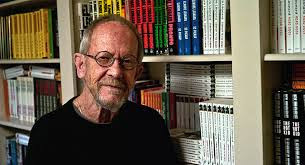
6 Never use the words "suddenly" or "all hell broke loose". This rule doesn't require an explanation. I have noticed that writers who use "suddenly" tend to exercise less control in the application of exclamation points.
7 Use regional dialect, patois, sparingly. Once you start spelling words in dialogue phonetically and loading the page with apostrophes, you won't be able to stop. Notice the way Annie Proulx captures the flavour of Wyoming voices in her book of short stories Close Range.
8 Avoid detailed descriptions of characters, which Steinbeck covered. In Ernest Hemingway's "Hills Like White Elephants", what do the "American and the girl with him" look like? "She had taken off her hat and put it on the table." That's the only reference to a physical description in the story.
9 Don't go into great detail describing places and things, unless you're Margaret Atwood and can paint scenes with language. You don't want descriptions that bring the action, the flow of the story, to a standstill.
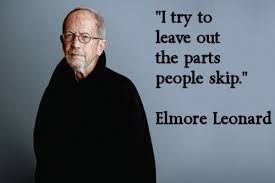
10 Try to leave out the part that readers tend to skip. Think of what you skip reading a novel: thick paragraphs of prose you can see have too many words in them.
My most important rule is one that sums up the 10: if it sounds like writing, I rewrite it.

Clancy's comment: There are some great tips here, especially the one about leaving out the bits that people skip. Yep, the secret is to cut to the chase and write for your reader - not yourself! Someone recently wrote to me and complimented my style of writing, "Your short sentences catapulted me through the story'. Mm ...
I'm ...


Published on October 03, 2015 04:03
October 2, 2015
3 October 2015 - PAULINE JAMES - Guest Author
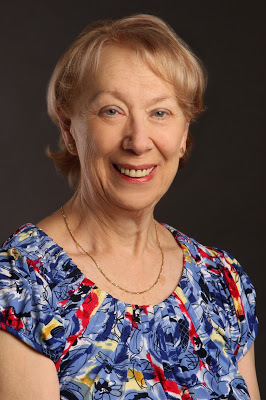
PAULINE JAMES
- Guest Author -
G'day folks,
Welcome to an interview I recently conducted with a very talented woman. Pauline James has been a chemistry teacher, a lecturer in Educational Psychology and researcher at the Hawthorn Institute of Education, and then the University of Melbourne. Her first novel is called 'Disturbing the Dust'.
Welcome Pauline ...
1. TELL US A LITTLE ABOUT YOURSELF AND YOUR WRITING JOURNEY.
At times, I’ve found writing immensely pleasurable, at others, extremely frustrating. I was once an academic writer and the switch to writing fiction, a novel called Disturbing the Dust, seemed sometimes an arduous, perhaps fruitless, journey. My writing was too formal, lacking sufficient emotional resonance. But the challenge was too great to resist. Though enjoying writing fiction and studying literature at school, I’d specialised in science (they called people like me ‘all-rounders’ then) and later, educational psychology, taking me then on a different journey.
2. WHEN AND HOW DID YOU BECOME A WRITER?
Having retired, I wanted to renew my interest in English language and literature and made writing fiction a retirement project. I would read widely, go to creative writing courses, join a book group and immerse myself in a different field. On a visit to England too, I passed the house where once I’d lived and thought it an ideal setting, if fictionalised, for part of the novel I had in mind.
3. WHAT TYPE OF PREPARATION DO YOU DO FOR A MANUSCRIPT? DO YOU PLAN EVERYTHING FIRST OR JUST SHOOT FROM THE HIP?
I made a general plan of the novel’s plot―what would happen in its four main parts―and a brief sketch of some of the characters. My story was of unresolved injustice and characters struggling with subsequent resentment. I would show post-traumatic stress in two young people of different ages (eight-year-old Jenny and sixteen-year-old Terry) manifested in different ways and then as adults, their journey towards healing through love and friendship. Using ‘themes’ from a personal trauma in my early adult life, I shaped the experience for my two main characters. These themes included: stereotyping, humiliation, not being believed when telling the truth, malicious gossip and an inability to prove my innocence. But then I started writing creatively. Other issues emerged, the plot evolved, characterisation had to deepen, unanticipated problems developed, new characters were needed and others discarded―not very orderly after all. Still, the process worked and, I suspect, in the second novel I hope I’ll write, my planning will proceed in a similar way.
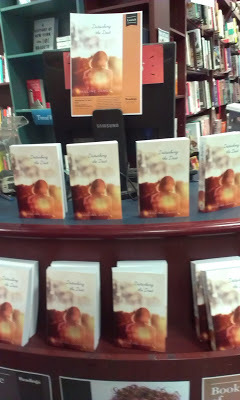
4. WHAT DO YOU ENJOY MOST ABOUT BEING A WRITER?
I most enjoy the freedom of working at home, not needing now to go out to work. I think it must be hard for writers combining their writing with another career.
5. WHAT IS THE HARDEST THING ABOUT BEING A WRITER?
Perhaps the hardest aspect of writing my novel, as opposed to academic writing, was my uncertainty about it on a number of levels. Was the fiction I’d created believable, were my writing style and choices about what to include and to exclude appropriate? Academic writing, in which I’d presented, interpreted and theorised data, seemed much easier. Those difficulties though were largely overcome when I found a mentor, the playwright Diane Stubbings, who boosted my confidence in what I was doing and, when something wasn’t working, often suggested an alternative approach.
6. WHAT WERE YOU IN A PAST LIFE, BEFORE YOU BECAME A WRITER?
I was a country girl who grew up in an English village, a corner of which is shown in the photograph. Poignantly, that patch of grass is called Stocks Hill (a site for punishment) and this was once my postal address. I studied chemistry and education at Sheffield University, married a fellow student and migrated to Australia after two years in the USA. In Australia, I continued to work as a chemistry teacher, specialised in educational psychology at the University of Queensland and had two children. Having moved from Brisbane to Melbourne, I then became a teacher educator, obtained a PhD at La Trobe University, conducted further research, lectures and administrative duties and later was appointed as a Principal Fellow at the University of Melbourne.
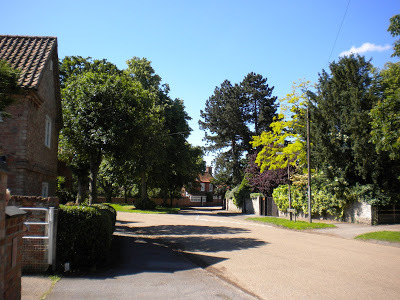
7. WHAT IS YOUR GREATEST WRITING ACHIEVEMENT?
I would have to cite my novel, Disturbing the Dust, though my PhD thesis, which won the La Trobe education medal, comes a close second. This explored the process of mature-age, beginning teachers becoming open to new learning through changing some of their personal stories. This gave me extra knowledge, usefully employed in the novel. I was also rather proud of a research project I led, and the report written with my colleagues, Pamela St Leger and Kevin Ward, and area networks throughout Victoria. This project evaluated strategies for helping students at risk of leaving school early. Encouraging young people to stay on in school, through school liaison with TAFE colleges and numerous community organisations, was a cause especially dear to my heart, creating greater opportunities for many young people.
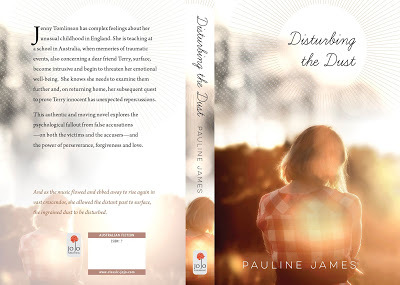
8. WHAT ARE YOU WORKING ON AT THE MOMENT?
I am thinking about writing another novel but am no further along than very preliminary planning and research. I’m too preoccupied in promoting Disturbing the Dust, as at my book launch at Readings, Hawthorn, book signings and discussions with book groups.
9. WHAT INSPIRES YOU?
I am always inspired by stories and projects involving issues of social justice, especially psychological responses to injustice, and ways towards healing and improving situations. Educational innovation and scientific breakthroughs remain an abiding interest too and may also be linked to social justice.
10. WHAT GENRE DO YOU WRITE?
I suspect I’ll always write psychological novels involving social issues, such as bullying, stereotyping and scapegoating those who, in some ways, are different from others.
11. DO YOU HAVE ANY TIPS FOR NEW WRITERS?
Most importantly, don’t give up. I nearly did. Use negative feedback constructively too. Even if it’s hurtful, or your critic has missed the point, look to discover how aspects of it might be employed to make useful changes (see Q. 12 below). Create something positive out of the negatives.
12. DO YOU SUFFER FROM WRITER’S BLOCK?
I only once suffered from severe writer’s block. This came after some very hurtful criticism of my writing, in which my critic had totally misinterpreted what I was trying to convey and was scathing in her condemnation. Though I tried to continue, I did nothing useful for several months. At last, though, I decided to change certain aspects of my novel, making misinterpretation virtually impossible. That led to deeper characterisation of several minor characters as well as my main character.
13. DO YOU HAVE A PREFERRED WRITING SCHEDULE?
Unless I have other commitments, I like to start work in the mornings after breakfast. I rarely force myself though, if I really don’t feel like it. My experience is that doing other things first is useful in keeping me going later, and there are times when I feel inspired in the evening or, on occasion, in the middle of the night. I live alone now and, without family and work commitments, it’s very easy to suit myself.
14. DO YOU HAVE A FAVOURITE WRITING PLACE?
Yes. My favourite writing place is my study, on a comfortable chair in front of my computer, with bookshelves on each side and space for my scraps of paper containing various jottings made at different times. When I visit my adult children and use their computers, I don’t work nearly as effectively, even when alone. Perhaps it’s a matter of feeling safe, enclosed by familiar things I love. That said, I’ve found it useful to have a notebook by my bed, in case I have a sudden insight, easily forgotten by morning. Many a writing problem has been solved this way. I’ve used this strategy for research projects too.
15. WHAT IS YOUR GREATEST JOY IN WRITING?
My greatest joy in writing is in solving problems, such as bringing a wayward sentence under control, or finding that what I want to say is at last being said with economy and elegance after much agonising and repeated failures. Finding a suitable place for essential backstory that hadn’t fitted conveniently before is another example of a challenge met.
16. WHO IS YOUR FAVOURITE AUTHOR AND WHY?
My favourite author remains Jane Austen for her complex understanding of people, her opposition to social snobbery, her wit and wisdom and her ability to afford immense variety in her characters, within the limitations of her chosen field. She was also a pioneer of free indirect speech, providing access to her characters’ consciousness even while writing in the third person. My novel uses this technique and is written entirely from the perspective of my main character, Jenny. Jane Austen’s books may be read many times over, with always something new to discover. Brilliant. 17. WHAT’S THE GREATEST COMPLIMENT YOU EVER RECEIVED FROM A READER?
Many readers have said that, once started, they were ‘riveted’ by Disturbing the Dust and couldn’t put it down. But perhaps the greatest compliment came from Mehreen Ahmed, who wrote: ‘… its universal appeal, honed over many years of learning, is its clarity of writing…’ and ‘…the book’s uniqueness lies in its apt use of powerful and unconventional images unfolding a convincing, robust tale.’
18. WHAT WAS THE WORST COMMENT FROM A READER?
Since publication, the worst comment I’ve heard about Disturbing the Dust is that it is ‘quite good’. Perhaps those who dislike it remain silent in my presence.
19. WRITERS ARE SOMETIMES INFLUENCED BY THINGS THAT HAPPEN IN THEIR OWN LIVES. ARE YOU?
Yes, I’ve drawn indirectly on my own life in two main ways. As mentioned in answer to Q. 3, I drew on ‘themes’ of an experience during my own early adulthood for creating traumatic situations for my two main characters. These were also set within the social and cultural milieu of a house where I lived as a child in that English village (see Q. 2). I was also a chemistry teacher, as is my main character, Jenny; like her, I also migrated to Australia. So my experiences overlap with hers, though in the book, of course, they are fictionalised for the purposes of the plot and characterisation.
20. OTHER THAN WRITING, WHAT ELSE DO YOU LOVE?
I love classical music and regularly attend concerts with friends at the Recital Centre in Melbourne, this year following the Australian Chamber Orchestra. Opera is another favourite, and I’ll have attended six of Opera Australia’s performances by the end of 2015. I also have a subscription to the Melbourne Theatre Company, enjoy seeing the latest films, attending art exhibitions (see photograph), playing the piano (wonderful for relieving stress), reading (biographies and fiction mainly), lunching with friends and travelling, especially to the UK, where most of my family, including my son and his wife, live.
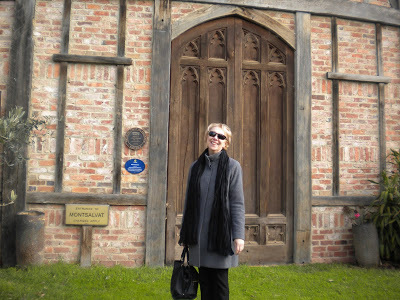
21. DID YOU HAVE YOUR BOOK / BOOKS PROFESSIONALLY EDITED BEFORE PUBLICATION?
Yes, I was fortunate in that my publisher appointed a professional editor, Orme Harris, for Disturbing the Dust. She made the process easy, enjoyable and satisfying.
22. DESCRIBE YOUR PERFECT DAY.
My perfect day might involve: solving The Age crosswords over breakfast, polishing some writing (not too arduous), lunching with a friend and seeing a film. On returning home, I might then attend to social media, read The Age, undertake more writing, walk around the block, cook dinner, listen to the news and watch a satisfying TV drama.
23. IF YOU WERE STUCK ON A DESERT ISLAND WITH ONE PERSON, WHO WOULD IT BE? WHY?
For a desert island, I’d choose my late husband, though I’m not sure he’d be any better than I at building a shelter or life raft, or obtaining suitable food. However, when not engaged in the serious business of staying alive in relative comfort, we would be able to laugh together, reminisce about our life experiences, provide accounts of books we’d read (he enjoyed crime fiction), all of which might help us stay sane, until a welcome ship appeared on the horizon.
24. WHAT WOULD YOU SAY IF YOU HAD THE CHANCE TO SPEAK TO WORLD LEADERS?
Probably what most people would say, that world leaders need to cooperate more, say, through the United Nations and other world fora, to provide better solutions to the problems of: displaced and persecuted people, climate change, women and minority groups throughout the world, poverty and disadvantage within and outside their own countries, warring factions and terrorist groups, but with less emphasis on bullets and bombs and more on addressing causes of dissatisfaction. It’s much easier to talk, of course, than to formulate detailed, effective policies that leaders can agree are fair and right and won’t lead to their soon being ousted from office for concessions made and advantages set aside.
25. WHAT ARE YOUR PLANS FOR THE FUTURE?
I would like to write at least one other novel, but am expecting my first grandchild in October so, until my son and his wife return to Australia, hope also to visit the UK often in the next few years.
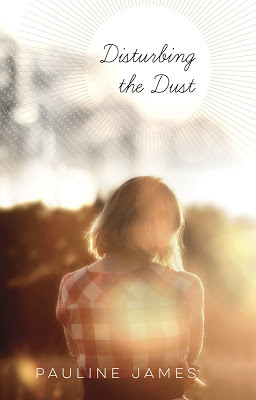
26. WHAT FIVE BOOKS WOULD YOU TAKE TO HEAVEN?
The five books I would like to take to heaven would be Emma, Jane Eyre and Middlemarch, the complete works of Shakespeare, and An Anthology of English, American and Australian poetry, if such a one exists. I could read these over and over again.
27. DO YOU SEE YOURSELF IN ANY OF YOUR CHARACTERS?
Yes, in some ways, I resemble both my main characters in Disturbing the Dust, though they seem to be very different people. When I was suffering from post-traumatic stress, I was very like Terry, my emotions very close to the surface. Later, once recovered, I became, not quite my old self (I had learnt a lot from that experience) but, like Jenny’s, my emotions were generally easier to control. Some of Terry’s and Jenny’s debates about such issues, I have also had with myself.
28. DOES THE PUBLISHING INDUSTRY FRUSTRATE YOU?
Yes, waiting to hear a yea or a nay from publishers and often not hearing anything from them is hard. I did appreciate certain publishers giving a reasonable timeline, though, for example, ‘If you haven’t heard from us within a month, then assume we’re not interested.’
29. DID YOU EVER THINK OF QUITTING?
I frequently thought of quitting, particularly in the early days when unsure about even considering the idea of publication. After working with my mentor, though, that did change, and I do tend to persist at anything I try to do.
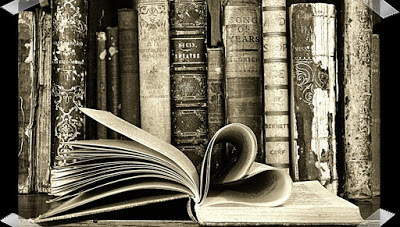
30. HOW WOULD YOU DEFINE ‘SUCCESS’ AS A WRITER?
‘Success’, I think, may be experienced on a number of levels. It may be sensed from the small personal achievements described in answer to Q. 15; I also felt successful when I obtained a publisher for my book and when my manuscript had been polished to my satisfaction. I once heard the novelist and playwright Michael Frayn say, when speaking in Melbourne, that ‘success is the ability to survive failure’ (I hope I’m not misquoting him), and think that is a positive way to see it. Now though, success for me has become defined by positive feedback received from readers, and I have received a lot of this. But it’s about sales figures too, and that external factors should matter so much to me is rather unnerving to say the least. But then, who would want to publish my second novel if my first isn’t successful according to those criteria?
31. WHAT SHOULD READERS WALK AWAY FROM YOUR BOOKS KNOWING? HOW SHOULD THEY FEEL?
I should like readers to know from Disturbing the Dust more about the psychological effects of trauma and some avenues for recovery from post-traumatic stress. I would like them to feel empathy for my characters and greater empathy with people’s suffering generally. I’d also like them to develop more insight perhaps into some of the psychosocial dynamics that may lead to misunderstandings, stereotyping and false accusations that sometimes devastate people’s lives. As Carolyn King, one of my book reviewers wrote, ‘Disturbing the Dust provides a powerful insight into the psychological damage wrought by social stereotyping in 1950s England. We follow the life of a young girl as she grapples with past injustices and is compelled to make things right. We are transported back in time and are able to understand the horror this young girl felt when no one would listen to the truth.’ As Cheryl Calwell, another of my reviewers, wrote: ‘I really cared about Jenny. The description of her childhood feelings were so real―at times painfully so …’
32. HOW MUCH THOUGHT GOES INTO DESIGNING A BOOK COVER?
I was fortunate in having Luke Harris, appointed by my publisher, to design my book cover. I was very grateful for that because I am definitely not a visual artist. The cover was suggested and I agreed.
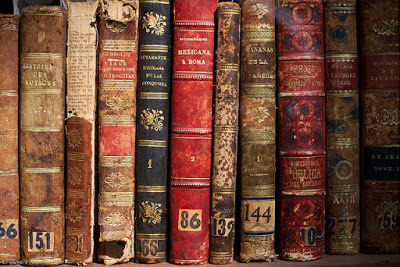
33. WHAT’S YOUR ULTIMATE DREAM?
My ultimate dream is to have produced two, or even three, novels with which I feel satisfied.
34. WRITING IS ONE THING. WHAT ABOUT MARKETING YOU, YOUR BOOKS AND YOUR BRAND? ANY THOUGHTS?
I find marketing very hard and prefer others to sing my praises. I do have a publicist, but much of this work, I understand, inevitably falls to the author to arrange. I was always taught not to speak of my achievements, unless specifically asked, and certainly not to boast, but that’s what I feel I’m now obliged to do.
35. ARE YOUR BOOKS SELF-PUBLISHED?
No, I am fortunate in having a Melbourne publisher, JoJo Publishing, for Disturbing the Dust. This is a small, independent publishing house, specialising, as they say, in ‘books that make a difference.’
36. DESCRIBE YOURSELF IN FIVE WORDS.
Some words used to describe me as the author of Disturbing the Dust are ‘compassionate’, ‘perceptive’ and ‘analytical’ and I’ll accept those with good grace. I’d also like to add ‘gentle’ but ‘persistent’, though some might say ‘obsessive’ instead.
37. WHAT PISSES YOU OFF MOST?
What pisses me off most is the refusal to listen to evidence or reason, denial, for example, that climate change is happening, or that it’s a product of human behaviour.
38. WHAT IS THE TITLE OF THE LAST BOOK YOU READ? GOOD ONE?
Among books I’ve read recently was The Narrow Road to the Deep North by Richard Flanagan, a brilliant, shocking and deeply moving book that forms useful background reading for my novel.
39. WHAT WOULD BE THE VERY LAST SENTENCE YOU’D WRITE?
If that were in a letter to my children, I’d like to say: ‘I’ve had a wonderful, even if difficult, life, full of opportunities some might envy, but, beyond everything else, you have been my greatest achievements.’
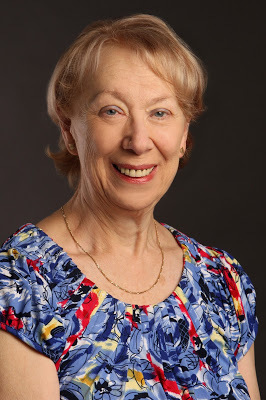
40. WHAT WOULD MAKE YOU HAPPIER THAN YOU ARE NOW? CARE TO SHARE?
To have written a second, even better novel, and that bothmy children could settle in a place to which I could conveniently move as well.
41. ANYTHING YOU’D LIKE TO ADD?
I don’t want to add anything else other than a very big thank you, Clancy, for giving me this wonderful opportunity to reach more people.
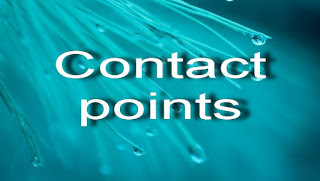
WEBSITE
E-BOOKS
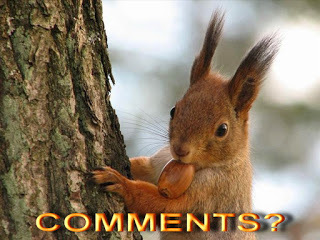
Clancy's comment: Thank you, Pauline. Folks, I told you Pauline was smart and talented. Good luck with the book. Keep going, and write the next. Love the title.
I'm ...


Published on October 02, 2015 05:27
October 1, 2015
2 October 2015 - ARE YOU POLITICALLY CORRECT?
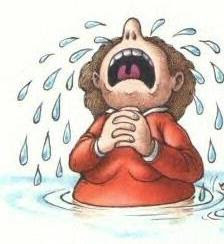
ARE YOUPOLITICALLY CORRECT?
G'day folks,
Mm ... I'd have to be the most un-politically correct person around. What about you? Okay, check out some of these quotes about this subject and see what you think.














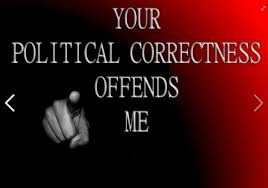

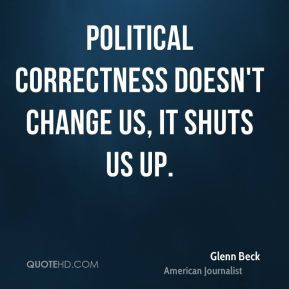

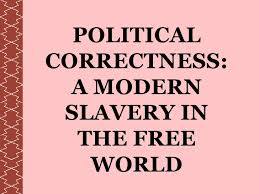
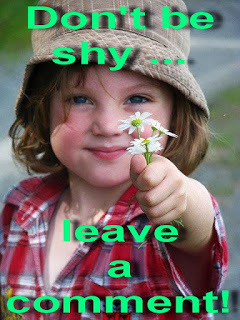
Clancy's comment: Mm ... Some time ago I said something to a close friend of mine who replied, 'You can't say that.' My reply, "I just did. Do you want me to repeat it? Tell me where I lied.'. My friend was gob smacked and said nothing.
I'm ...
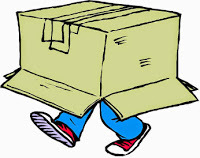

Published on October 01, 2015 04:04



